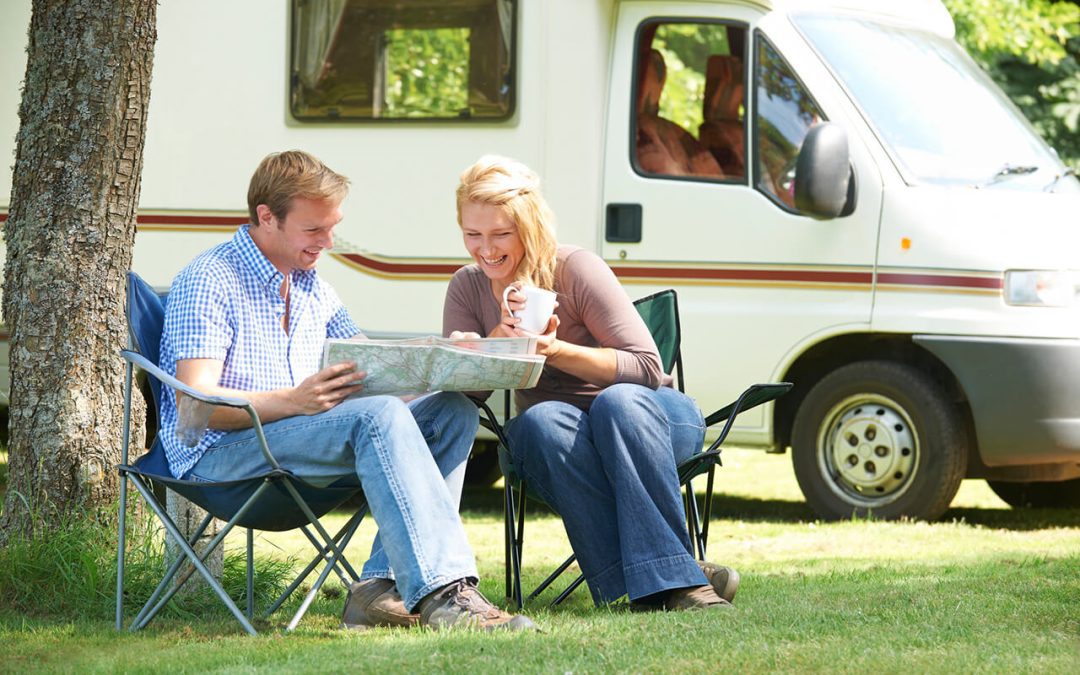Hitting the open road in an RV offers a unique kind of freedom; taking your home with you, choosing your own pace, and waking up to a different view whenever you want. For homeowners ready to break away from routine, it’s the perfect way to travel. But to make the most of it, you need to plan an RV trip that’s both seamless and memorable. A little preparation makes all the difference when your home moves with you. Here’s how to get started.
Choosing the Right Route for Your RV Trip
When beginning to plan an RV trip, your route is one of the first pieces to lock in. RV travel has its own set of considerations. Not all roads are RV-friendly—some have low clearances, sharp turns, or weight restrictions.
Start by identifying your must-see destinations and looking for scenic byways, national parks, or unique roadside attractions. Use RV-specific GPS apps or online route planners to ensure your journey is safe and suited to your vehicle’s size. Remember that the journey is part of the adventure. Plan for shorter drive times for detours, photo ops, and rest.
Finding the Best Campgrounds and RV Parks
One of the most important elements of planning an RV trip is deciding where you’ll stay each night. Campgrounds vary widely in terms of amenities, availability, and atmosphere. Some offer full hookups and luxurious clubhouses, while others are rustic spots nestled in nature.
Do your research well in advance, especially if you’re traveling during peak season. National and state parks tend to book up quickly. Private RV parks may offer more flexibility, but often come at a higher cost. Consider the needs of your travel group: laundry, pet-friendly options, strong Wi-Fi, or easy access to attractions.
Budgeting for Your RV Trip
Many homeowners are drawn to RV travel as a cost-effective way to vacation. Part of planning an RV trip involves setting a realistic budget.
Consider fuel (which will add up quickly), campground fees, food, park entrance fees, and maintenance or emergency repairs. If renting an RV rather than using your own, add the insurance cost and mileage. A financial plan helps you avoid stress on the road and ensures you will make the most of each stop without breaking the bank.
Packing Smart for Life on the Road
Given the limited space, packing an RV requires strategy and efficiency. When planning an RV trip, consider the essentials: food, cooking supplies, tools, clothing, and personal items.
Remember your RV-specific gear, such as sewer hoses, wheel chocks, leveling blocks, and freshwater hoses. Create a checklist to avoid overpacking. At the same time, remember comfort items like your favorite pillow, camp chairs, or a hammock to enjoy quiet evenings under the stars.
Preparing for the Unexpected During Your RV Trip
Even the most well-planned trips may run into issues. When planning an RV trip, it’s smart to expect the unexpected. Carry a basic tool kit, a first aid kit, extra fuses, and know how to troubleshoot common RV issues.
Also, ensure you’re familiar with your RV’s systems before you leave—practice using the slide-outs, dumping the tanks, and hooking up water and electricity. Always have a backup plan in case a campground is full or weather forces a change in route.
Planning an RV trip doesn’t have to be overwhelming. With the right approach and a sense of adventure, you will turn your travel dreams into a reality. Whether you’re a first-timer or a seasoned traveler, knowing how to plan an RV trip gives you the freedom to enjoy the journey as much as the destination.
FAQs
What’s the best app for planning an RV trip?
Apps like RV Life, Roadtrippers, and Campendium are favorites among RVers. They help with route planning, campground reviews, and finding RV-friendly stops.
How far in advance should I book RV parks or campgrounds?
If traveling during peak seasons or to popular destinations, book as far ahead as possible—ideally 3 to 6 months in advance.
Can I park overnight at Walmart or other stores?
Some stores still allow it, but always call ahead and ask for permission. Policies vary by location and local ordinances.
How much does a typical RV trip cost?
It varies widely, but many RVers budget between $100 and $300 per day, depending on fuel costs, campground choices, and personal travel style.
Is it better to plan every stop or go with the flow?
A blend works well. Have a loose itinerary and a few key reservations, but leave space for spontaneous adventures along the way.
Chief RV offers RV inspections and services in Southern California. Contact us to schedule an appointment.

